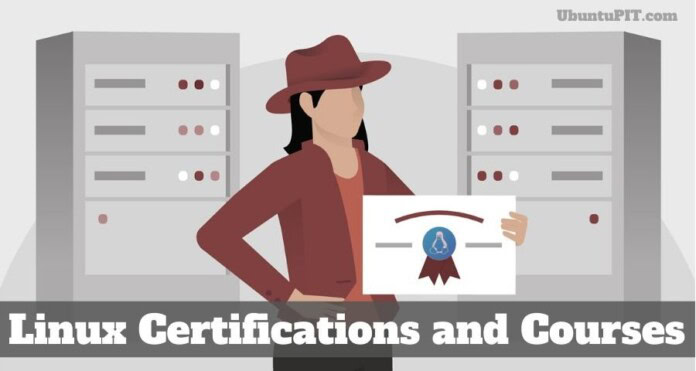Linux has long become the powerhouse of modern applications and business infrastructures. Various Linux distributions are responsible for powering the next generation of commercial platforms. The demand for Linux has increased in many high-paying computer science jobs, and as we start 2020, we’ll take a closer look at how to become a certified Linux guru. Although you don’t need to have a computer science degree or Linux certification for getting a job, many hiring managers still give high value to those who’ve completed industry-standard Linux courses. Our editor team has compiled a list of the 30 best such courses and certifications that will help you secure a lucrative job in 2020.
Best Linux Certifications and Courses
When choosing a Linux training course, you’ll need to decide on things like certification costs, market demand, job openings, and so on. We’ve tried our best to outline courses that will prepare you to tackle most system administration, IT management, and DevOps positions. We suggest readers go through as many courses as they can before selecting a specific certification.
1. Linux Installation and Initial Configuration
This course from Pluralsight is, without any doubt, one of the best resources for aspiring Linux users. It is aimed at recent CS grads and hobbyist programmers. It’s the perfect choice for people looking for in-depth courses on Linux installation and initial configuration.
By the end of this course, you’ll have a broad overview of different Linux flavors, package management, software libraries, and the Linux filesystem. This course also introduces students to features like access control and permissions.
Features of this Course
- It introduces users with different Linux distros such as Ubuntu, CentOS, and Lubuntu alongside DistroWatch and the popular Raspberry Pie platform.
- Users will have a clear understanding of different Linux installation techniques like dual-boot, swap partition, and enterprise installation when they complete this course.
- It teaches the fundamentals of Linux boot loaders and familiarizes a wide variety of GUI tools for resource and package management.
- Students will master the basics of kernel and user-space modules, shared libraries, partitions, filesystems, and several widely used tools.
2. Linux Basics: The Command Line Interface
Mastering the command-line is a must if you want to secure a professional Linux job. This is an excellent course that introduces students to the Linux command-line, aka the terminal.
It provides a practical insight into the fundamental Linux terminal commands and helps users build powerful C programs using standard Linux tools. Moreover, this online Linux training is entirely free of charge. However, to get the verified certification, you’ll need to register by paying the $49 fee.
Features of this Course
- Students will learn the most important Linux and BSD systems concept, the command-line, alongside other essential Linux skills.
- This course teaches users how to write robust, modern-day software packages using the C programming language and standard Unix tools.
- It introduces students to some core Unix philosophies, including the Linux filesystem, memory management, and process control.
- Students will obtain an authorized certification upon completing this course, which can help manage an internship program.
3. Introduction to Linux (LFS101)
This is another introductory course aimed at absolute beginners from The Linux Foundation. They are a prolific non-profit and are associated with Linus Torvalds himself. The course dissects various Linux distributions to show students how to choose the perfect system for them.
The use of standard, day-to-day Linux tools familiarizes students with the life of a professional system administrator while providing insight into the enterprise computing world at the same time. We found this course to be an excellent choice for recent CS graduates.
Features of this Course
- This Linux certification is the best in providing a very well-laid out foundation and building on top of that with perfect, real-life examples.
- Students who pay for the verified certification will enjoy greater acceptance rates in most high-paying CS jobs in 2020.
- The course organization is simple but practical- teaching new concepts with practical examples and an engineering point of view.
- Users can obtain the entire course material for free and may choose to pay for the certification later.
4. Learn Linux in 5 Days and Level Up Your Career
If you are a software developer with substantial knowledge of programming and IT in general, this is the best Linux training program for you. It’s an excellent course offered via Udemy, which comes with around 6 hours of video tutorial and over 50 downloadable resources. Students can even access the contents through their smartphones and TVs. So, if you’re looking to bolster your CV with high-demanding Linux skills, be sure to take a look at this course.
Features of this Course
- Although this Linux course doesn’t state any pre-requisites, we suggest only seasoned developers pick this program.
- You’ll learn a great deal of stuff in a short amount of time, like essential commands, remote access, file processing, the filesystem hierarchy, and CRON.
- It presents a clear idea of managing Virtual Box emulators so that developers from other systems can try Linux much easier.
- Beginners can also learn this course, but such a concise training program will hardly bring special attention from employers.
5. Red Hat Certified System Administrator (RHCSA)
The RHCSA offered by the Red Hat is considered to be one of the best Linux certification training. It has a good reputation in the IT industry, and many hiring managers will select you once you’ve completed it.
If you’re asking yourself how to be a system administrator in the fastest way possible, this course is the answer for you. Students will learn how to install and configure a Red Hat system alongside essential system administration tasks like networking, asset management, and monitoring.
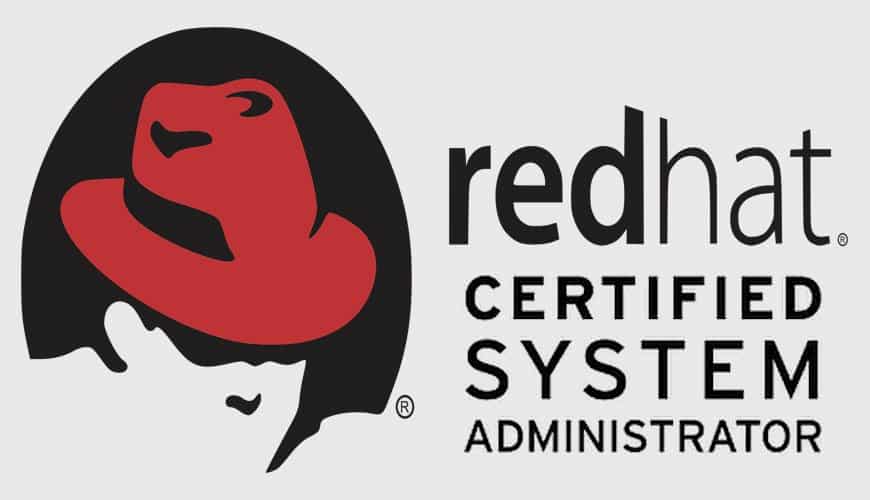
Features of this Course
- This Unix certification is very popular and will prepare graduates for competitive, industry-relevant administration tasks.
- Students will need to pass the EX200 test to earn the certificate, consisting of 2 modules, i.e., RH124 and RH134.
- It is a must to earn the Red Hat Certified Engineer (RHCE) certification in the future stage of your career.
- Due to its extreme popularity and high standard, this is a costly program with a $400 fee for the exam alone.
6. Linux System Administration Fundamentals
Linux System Administration Fundamentals is another modern and exciting pick of our guide. Our editors really liked the structure of this Linux course, and the instructions well-thought.
This program aims to prepare individuals for the LPIC-1 117-102 exam, which requires participants to have in-depth knowledge of Linux shell scripting and customization. So, if you’re practicing for the prestigious LPIC-1 and Linux+ CompTIA certification, taking a look at this course will prove to be the right choice.
Features of this Course
- This Unix certification aims to start users and covers more than four hours of video materials alongside useful command-line examples.
- Students will learn real-life examples of system automation such as Linux CRON jobs, task scheduling, batch processing, etc.
- It demonstrates the standard X server’s workings and the GUI frontend alongside advanced topics like active directory integration.
- This Linux program introduces users with advanced environment configurations using the Linux locale.
7. Linux Mastery: Master the Linux Command Line in 11.5 Hours
This is one of the highest-rated Linux training programs in Udemy, which aims to strengthen your terminal skills. Students will learn to navigate through their distros via the command-line effectively after the completion of this course.
It will turn you into a skillful, independent system administrator capable of solving real-life problems involving the Linux OS. Additionally, the course materials are to the point and incorporate necessary examples for demonstrating problems.
Features of this Course
- This training program provides a thorough overview of the Linux shell, filesystem hierarchy, scheduling, and process automation.
- The instructor is cautious of discussing even the smallest details and clearly expresses his ideas to the audience.
- Students can obtain all course materials, including 15+ downloadable resources, assignments, and mobile access alongside the video lectures.
- Users will earn a verified Linux certification from Udemy once they complete this training course successfully.
8. Linux System Engineer: Networking and SSH
Networking is the sole responsibility of many system administrators. You can easily grab a high-paying job as a network admin, IT manager, or cybersecurity engineer if your networking skills are solid. This course is a great choice for people with Linux’s prior knowledge to develop essential networking capabilities.
It’s a relatively short course, so working developers can also enroll. Although you’ll hardly get a sysadmin job by completing such a short course, it will gradually introduce you to the core concepts.
Features of this Course
- This Linux certification carefully presents the many networking capabilities of Linux alongside standard tools and their applications.
- IT recruiters can easily train their employees in managing enterprise infrastructures by using this short but concise course.
- Students will learn the ins and outs of the SSH mechanism, best practices, and speed optimization from this program.
- This course introduces users to a massive list of networking tools, including ip, netstat, nstat, ss, arp, ifconfig, etc.
9. Configuring Linux Web Servers
If you’re a hobbyist developer looking to gain first-hand experience with Linux web stacks, this is arguably the best Linux course for you. Junior sysadmins who are working with non-Unix systems can also learn a lot from this course. Moreover, it is a Nanodegree program delivered by Udacity.
So, you can confidently show off your newfound Linux skills to potential employers. The course is entirely free of charge and self-paced, allowing you to complete your free time assignments.
Features of this Course
- Participants will get real-world web experience involving a Python WSGI app running from within a Vagrant virtual machine.
- The rich learning contents also cover the usage of Apache HTTP servers, PostgreSQL databases, and standard Linux firewalls.
- This course takes a practical approach to Linux web servers, where you progress by doing exercises yourself.
- You should clearly understand the Python language, the command shell, and some relational databases’ basic concepts.
10. Linux Security and Hardening Essential Training
This is another excellent training program for starting network and system administrators. If you’re looking for a short course to familiarize yourself with standard Linux security practices, it’s a great course for you.
Like most Lynda courses, it’s also very well-organized and presents one topic at a time. Although meant for intermediate Unix learners, beginners can benefit from it too. Our editors found this program to be extremely suitable for training new IT recruits.
Features of this Course
- The entire course is organized into five modules that discuss core security issues like network hardening, filesystem protection, user account security, etc.
- Students who’ve signed up with Lynda can download the course materials to view and use offline, alongside companion mobile apps.
- The readily available exercise files allow users to tinker with the materials and gain hands-on experience on Linux security.
- Anyone looking to obtain security essentials can benefit from this course and may leverage it for attaining better work goals.
11. Linux Professional Institute(LPI): Linux Essentials
Linux Essentials from LPI is a great certification that is held in high regard by IT recruiters. If you’re a beginning Linux user or a recent graduate looking to enhance your resume’s quality, completing this course will be a great start for you.
Students will need to clear the Linux Essentials Exam 010 to obtain this certificate. Moreover, the validity of the certification is for a lifetime, unlike many popular Linux programs. Thus, we highly suggest users take a look at this course.
Features of this Course
- This course is meant for absolute beginners and introduces popular distros, system environment, command-line, and common Linux terminal commands.
- Students can give the final exam in multiple languages, including German, Dutch, Japanese, Chinese, and Brazilian.
- The lifetime validity of the certificate helps students bolster their CV without paying for additional certifications.
- Users will obtain a clear understanding of IT enterprises’ various open-source software alongside business issues like licensing.
12. Red Hat Certified Engineer(RHCE)
The universal demand for Red Hat certified engineers is enough to validate the credibility of their Linux courses. The RHCE certification is one such program that will prepare you for handling complex, large-scale industrial projects involving automation.
Recruiters value this certificate very highly due to its robust curriculum and enterprise-level standard. If you’ve already obtained the RHCSA certification and are looking to exploit further job promotions, you should check out this program.
Features of this Course
- This course teaches developers how to integrate automation into existing IT projects clearly and practically.
- This certification’s validity is for three years, and then users will need to recertify again on added materials or platforms.
- Developers who’ve completed this Linux program will likely get more job opportunities in competitive workplaces.
- Students can either choose the legacy RHCE learning path or pursue the new automation-focused training.
13. Linux Foundation Certified System Administrator (LFCS)
The LFCS is another extremely popular certification that will increase your Linux skills alongside greater job benefits. It is particularly suitable for people who are in the early stages of their careers. Users are introduced to the core concepts, skills, and best practices in a practical way.
The three hundred dollar certification is held in high regard due to its standard and will certainly help graduates grab more lucrative job offers. Additionally, the online exam is easy to take and allows free exam retakes if you so badly.
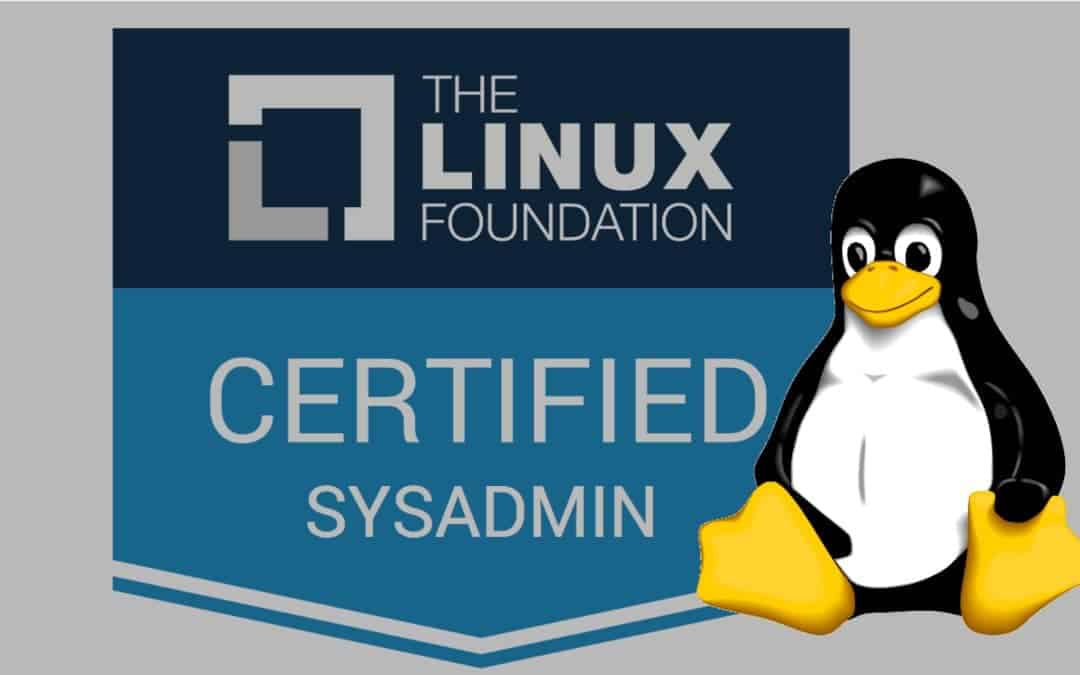
Features of this Course
- The course deals with essential commands, system operations, environment configurations, user and group management, and networking and storage management.
- Linux Foundation offers an excellent free prep guide to help students prepare for the exam and maximize certification success.
- Candidates will need to solve real-world problems using the Linux command-line for attaining this certification.
- The verified certification is valid for three years and offers both onsite and virtual Linux training facilities.
14. Linux Systems Programming
Systems programming is considered to be a valuable asset to most Linux developers. Whether you’re a sysadmin or in DevOps, the ability to program your system based on enterprise requirements is a must. This training program is the perfect way to get yourself started with Linux systems programming for many reasons.
It provides a comprehensive introduction to the standard C library and outlines essential system call interfaces. Overall, this is a great course for engineers who’re looking to reinforce their Linux mastery.
Features of this Course
- This course shows various fundamental Linux system calls using the C and Python programming languages.
- It discusses I/O’s workings in Linux and establishes well laid-out strategies for maintaining the filesystem hierarchy.
- Students will get a concise but practical overview of the command shell and learn how to manage memory, processes, and pipes.
- It also provides an excellent outline of access control, permissions, and mastering signals.
15. LPIC-1: Linux Administrator
The LPIC-1 is a basic course that is the first part of LPI’s widely recognized professional Linux certification. LPIC certifications provide additional credibility to the developer’s resume. You’ll simply need to pass the 101 and 102 exams to obtain this certificate.
Students are expected to understand the Linux system architecture, shell, filesystem operations, and properties alongside fundamental maintenance jobs. So, don’t forget to check out this program if you’re on your way to become an LPIC certified professional.
Features of this Course
- The course materials are designed in a way that validates your efficiency in real-life system administration.
- You’ll earn a verified certificate with a validity period of five years and is essential for the LPIC-2 certification.
- Students can choose from various languages for their exams, including German, Chinese, Japanese, Spanish, and Portuguese.
- LPIC is constantly adding useful, free learning materials to help users prepare better for their exams.
16. LPIC-2: Linux Engineer
This is the second course of the multi-level LPI professional certification. Developers must have an active LPIC-1 certificate and pass the exams 201 and 202 to complete this course. This program validates your credibility to run and manage small to medium-sized enterprise networks.
Job seekers who’ve obtained both the LPIC-1 and LPIC-2 certifications are likely to get substantial job offers. So, you should definitely take these courses if you want guaranteed leverage over your competition.
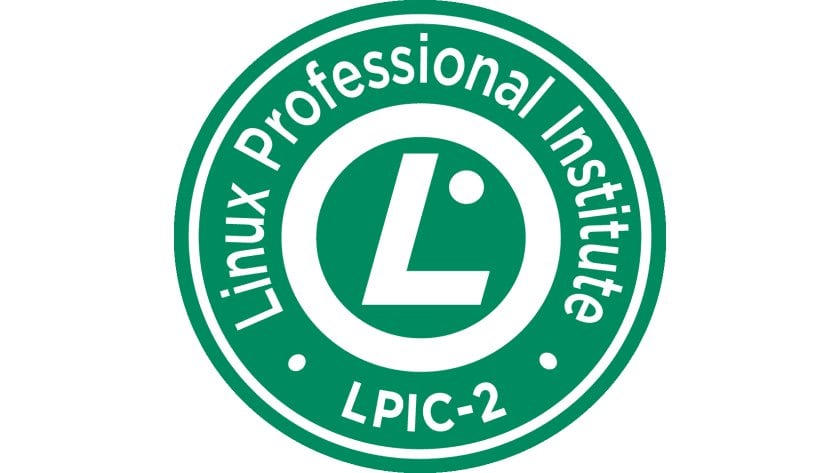
Features of this Course
- LPIC-2 certification proves your ability to perform advanced, real-world system administration involving enterprise Linux distributions.
- This course demonstrates your capabilities with networking, system security, block storage management, and authentication.
- Companies can verify your skills involving essential web services like DNS, DHCP, SSH, Linux email servers, and file server services.
- The certification is valid for five years and costs four hundred USD for the two exams, two hundred each.
17. Linux Administration with sed and awk
Many IT engineers are tasked with the monitoring of live business data. Linux offers some of the best file and stream processing tools, such as grep, sed, and awk. This is a practical course aimed at developers who want to strengthen their IT skills to the next level. You’ll learn how to deal with complex commercial data using these standard Unix tools with real-world examples. It will provide you the essential foundations required for becoming a top-notch Linux administrator.
Features of this Course
- This modern-day course provides an excellent introduction to widely used Linux grep commands alongside sed and awk.
- Users will learn the ins and outs of regular expressions and will be able to process real-life data using them.
- The instructor discusses sed and awk from a practical perspective and demonstrates their workings for a hands-on experience.
- Beginners will learn to analyze massive weblogs using awk and other standard Unix tools.
18. Embedded Linux Step by Step using Beaglebone Black
If you’re an IoT enthusiast who likes to work in real-world embedded systems a lot, here is a great course dealing with Embedded Linux. However, we must advise you to take this program only if you have early experience with single board computers.
Participants will learn a lot of information, including the boot process of Linux-based ARM devices, busy box compilation, EEPROM programming, GPIO programming, etc. So don’t forget to check out this Linux course if you’re into embedded systems.
Features of this Course
- The course assumes participants have prior experience with the Linux kernel, everyday terminal commands, and the C programming language.
- You’ll receive a verified certificate when you complete the course and access Udemy’s companion mobile apps’ learning materials.
- This course provides an in-depth explanation of the various ARM configuration files, Linux device trees, Beaglebone bootloaders, serial booting(UART), etc.
19. Open Source Software Development, Linux and Git Specialization
This is another great Linux certification training for open source developers. This is a specialization course offered by the Linux Foundation through Coursera. As it’s a free program, you can enroll without any drawbacks.
Although you’ll need to pay for receiving the verified certificate, you can apply for financial aid if you want. The entire program is divided into four different courses: open source development, standard Linux tools, distributed development, and GIT.
Features of this Course
- This course’s self-paced nature allows you to tackle the course assignments in your free time and tinker with the course materials.
- Participants will learn from carefully laid-out video tutorials, graded quizzes, programming assignments, and peer feedback.
- The verified certificate is easily shareable on digital media such as Linkedin, which significantly increases your portfolio.
- Although this course is aimed at beginners, you should have a working understanding of the Linux shell and common terminal commands.
20. Linux Foundation Certified Engineer (LFCE)
The LFCE is widely accepted as the best Linux certification for many reasons. This professional certification is a true game-changer and will help you earn significantly more than your current income.
This course requires users to have three to five years of prior experience with Linux and validates their critical skills, knowledge, and abilities as system admin. Although you’re not required to have the LFCS certification for this course, we suggest you try this course after completing the LFCS.
Features of this Course
- The course costs three hundred US dollars and provides a verified certificate that is valid for three years.
- Participants should possess substantial knowledge of essential commands, networking, service configuration, storage management, and system deployment.
- This certification adds well-regarded credibility to your resume and will help in landing more job opportunities.
- You will have 12-month exam eligibility for this course and retake it any time you want without additional charges.
21. The Unix Workbench
This is a wonderful Unix certification program for those who are new to Linux and BSD distributions. The course materials are very well-organized and allow students to complete the course at their speed. As a participant, you’ll learn about different Unix systems, notably Ubuntu and macOS.
You’ll also have a solid understanding of the command-shell and essential open source tools. By the end of this program, you will be able to differentiate between different Unix flavors and carry on day-to-day computing tasks.
Features of this Course
- This course is offered by Johns Hopkins University and helps more than thirty percent of participants get a promotion.
- The entire program is divided among four modules that discuss Unix, shell, bash programming, and version control basics.
- Participants will earn a solid understanding of Linux shell scripts, makefiles, working from the cloud, and standard Linux development practices.
- Although the learning materials are free for everyone, you’re expected to pay for the verified certification once you complete the course.
22. CompTIA Linux+
Many IT experts consider the CompTIA Linux+ to be the best Linux certifications. It is a widely recognized professional certificate that validates your command over the Linux operating system and your ability to manage enterprise IT infrastructures.
The course contents are entirely focused on jobs and will ensure greater workplace benefits for people who complete this course successfully. You’ll need to have a solid understanding of various Linux distributions, the command-line, workstation management, storage & visualization, networking, system maintenance, and so on.
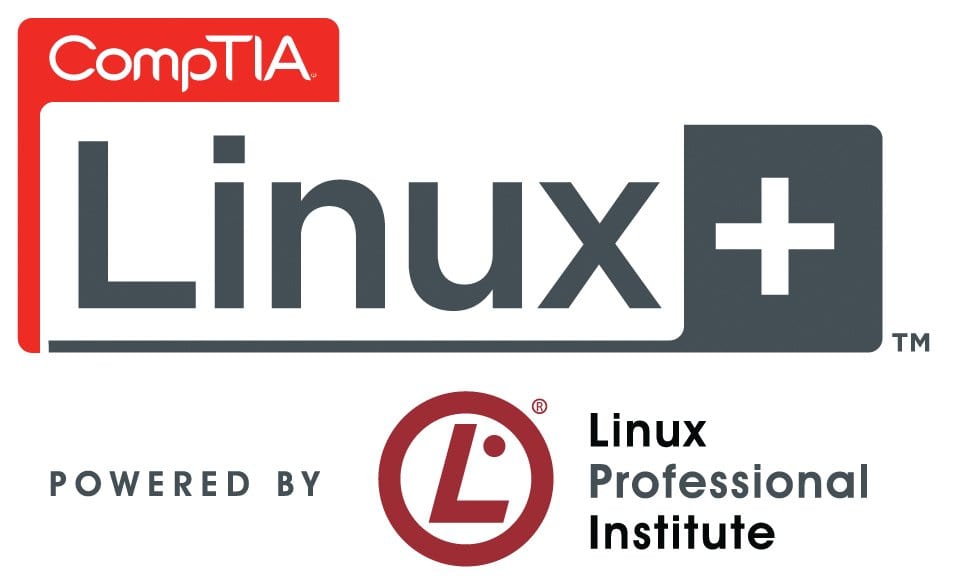
Features of this Course
- Participants will need to pass the XK0-004 exam with more than 720 scores (on a scale of 100 to 900) for obtaining this certification.
- Questions are asked from kernel modules, filesystem & device management, SELinux, networking & firewalls, automation, web services, troubleshooting, etc.
- CompTIA offers exceptional learning facilities for participants through its eLearning platform.
- The certification will be valid for three years, and the exam will cost $319 US dollars per person.
23. Red Hat Certified Architect (RHCA)
An RHCA is a prominent Linux master who has attained the highest professional certification from Red Hat. It is a highly prestigious Linux certification training that validates your abilities as an enterprise IT manager. Participants can choose from two RHCA certifications, one in infrastructure and another in enterprise applications.
You can also complete both paths and take extra credentials from their growing list of specializations. An RHCE must pass and keep at least five Red Hat certifications from a select set if he wants to attain and maintain RHCA certification.
Features of this Course
- The requirements for attaining RHCA vary based on your existing Red Hat certifications, so take a look at the course page for detailed information.
- Red Hat provides exceptional guidance outlining the recommended Linux courses based on your job requirements.
- This is the best Red Hat certification for professionals who want to make the most out of their experienced skillset.
- The course layout is extremely diverse and can seamlessly cater to the need of different Linux positions.
24. Oracle Certified Professional (OCP)
Oracle is famous for delivering cutting-edge software services and has a great reputation in the industry. The OCP certification from Oracle is an excellent professional testimony that will boost your career to the next level.
It demonstrates your capabilities as an Oracle Linux engineer and validates your credibility to work with leading PaaS, SaaS, Elastic Cloud, and other Oracle technologies. However, candidates must have an active Oracle Certified Associate (OCA) certification to participate in this Linux training.
Features of this Course
- This course validates the foundational knowledge of enterprise Linux professionals and accelerates career growths.
- Developers who’ve passed this course possess advanced capabilities such as dynamic tracing, downtime-patching, and complex database management.
- Candidates must pass the 1Z0-105 exam consisting of 97 multiple choice questions with more than 61% score for obtaining this certification.
- This certification cost is $245 US dollars and allows participants to take the exam within 6 months of registration.
25. LPIC-3: Linux Enterprise Professional
The LPIC-3 is the last level of LPI’s industry-standard professional certification program. It has three different specializations, which consist of a mixed environment, security, and virtualization & high-availability certifications.
You can take the exam that leads to your career path but must have an active LPIC-2 certification. These certificates will endorse your prowess as an enterprise Linux engineer and will present more job opportunities. Like other LPIC certifications, LPIC-3 has a validity period of five years.
Features of this Course
- Candidates must pass exam 300 for the mixed environment, exam 303 for security, and exam 304 for the virtualization program.
- Each certification in the LPIC-3 series is valid for five years and can be taken in any order or just a specific one.
- The course materials are very well outlined and provide question weights for helping in better preparations.
- Since LPIC-3 certifications are neutral of distributions, they are a great endorsement for any Linux professional.
26. Linux Server Management and Security
This is a simple but useful Linux course aimed at hobbyists or fresh graduates. It can be helpful to those who are looking for basic training on Linux web server management. This is a specialization course offered by the University of Colorado through Coursera.
You’ll receive a recognized certificate of completion that will increase the weight of your CV. Although this is a foundational course, Junior Linux developers will benefit greatly from this course due to its modern and versatile curriculum.
Features of this Course
- This self-paced specialization offers excellent video tutorials, reading assignments, practice quizzes, and programming tasks.
- You can pay for the verified certificate after completing this course and share it on employment-oriented services like Linkedin.
- This specialization includes enterprise Linux configuration, managing authentication & authorization, and practical system security.
- Our editors found the instructor really helpful since he expressed his ideas very clearly and offered practical insights.
27. Penetration Testing with Kali Linux: OSCP
The OSCP or Offensive Security Certified Professional is the leading certification for penetration testers. This certification is delivered by Offensive Security, the developers behind Kali. They’re world-renowned for their ethical hacking certifications. If you’re working as a security engineer, you should definitely obtain this certification.
It’s the foundational course at Offensive Security and validates your credibility as a security professional. Although this course costs a lot, the professional certificate will increase your job opportunities by a large margin.
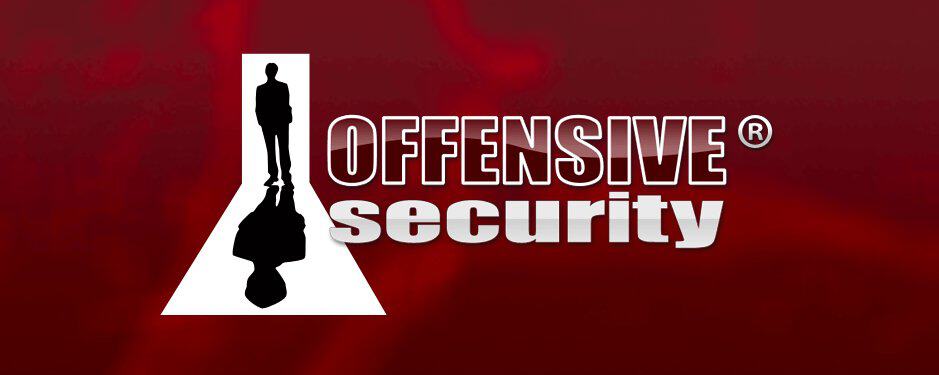
Features of this Course
- Candidates need to pass a 24-hour long exam and gain access to a virtual lab using standard ethical hacking tools to earn the OSCP certification.
- Enterprises give high-priority to engineers with the OSCP designation due to its complex, real-world tests.
- Participants must have a solid understanding of the Linux system, TCP/IP stack, and prior experience with bash or other scripting languages.
- The preparation materials include eight hours of video lessons, a detailed course guide, access to virtual labs, and active community forums.
28. GCUX: GIAC Certified UNIX Security Administrator
The GCUX certification from GIAC (Global Information Assurance Certification) is another prestigious Linux certification aimed at security personnel. It is a great addition to the resume of new penetration testers since obtaining this training is much easier than the above program.
You’ll simply need to pass one proctored exam consisting of 75 questions. The minimum passing score for this certificate is 68% and has a time limit of 2 hours. Our editors highly suggest this course for starting ethical hackers.
Features of this Course
- This course deals with Linux application security, digital forensics, and Unix system hardening concepts.
- Candidates should possess a prior idea of the Linux shell, privileges, standard network tools, and environments.
- The course is aimed at security auditors, network administrators, ethical hackers, and monitoring personnel.
- Participants can access live conference training alongside online and self-study materials.
29. Linux for System Engineers (LFS311)
This is a fairly advanced Linux course aimed at seasoned system admins as well as Linux engineers. This is a full-fledged training program and costs $3250 per registration. This course is suited to professionals who are looking for extreme competitive advantages over their peers.
By the end of this program, you’ll be capable of designing, deploying, and maintaining large-scale enterprise infrastructure. The Linux Foundation also offers 4-days instructor-led classes alongside a free Chromebook for participants.
Features of this Course
- This course’s learning materials include virtual classroom lectures & labs, hands-on assignments, and a detailed course manual.
- Candidates will master the networking concepts, configurations, troubleshooting, DNS, HTTP servers, Linux email servers, network file systems, and many more.
- This course also provides in-depth knowledge of Linux package management concepts, high availability clusters, and standard firewalls.
- Enterprises can get a corporate pricing plan if they buy batch subscriptions of this Linux training program.
30. Linux Survival
This is a slightly different course mentioned in our guide since it’s not a certification program. Instead, it’s a fun but practical Linux course that teaches participants the command-line basics using an interactive online platform.
Users can try out new command combinations and take simple quizzes that test their abilities. Our editors really liked this program due to its simple yet practical design. Simply go to their website and start tinkering with the examples to check out how this works.
Features of this Course
- It is not a full-fledged certification program and provides no validation for your Linux knowledge.
- The contents are divided into three modules and consist of four interactive quiz tests.
- Beginners will have a clear understanding of many essential Linux commands from this online program.
- It’s meant to be a quick introduction for new Linux enthusiasts as well as recent CS graduates.
Ending Thoughts
Due to its diverse applications, there is a massive collection of Linux training programs. Earning these certifications will lead your career to the next level and help to bolster your resume. Thankfully, many free and paid Linux courses are also available to help developers earn professional Linux credentials. Some of the best Linux certifications include the Red Hat LFCS, LFCE, CompTIA Linux+, OCP, and LPIC courses.
Additionally, if you’re looking to persuade a career in security, the OSCP certification is a must. However, if all you want is to learn, you can choose from many excellent courses offered by Coursera, Lynda, Udemy, and Pluralsight.
